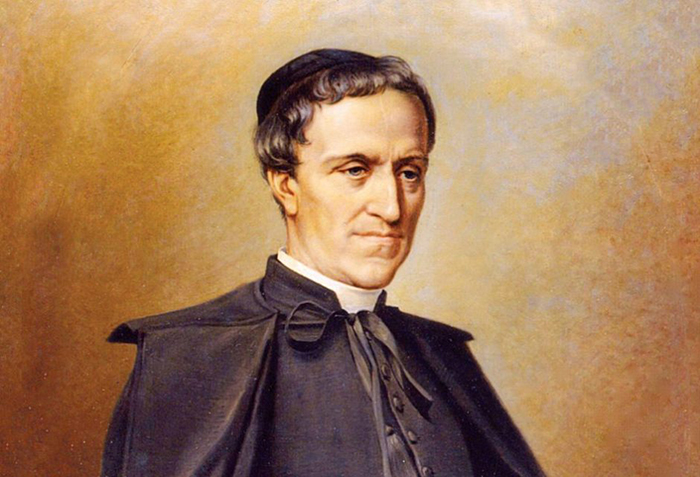Aurelio Porfiri
He was a great Catholic intellectual figure and a man of great spirituality. We are talking about the Italian Blessed Antonio Rosmini (1797-1855), a friend of the great Italian writer Alessandro Manzoni and a key figure in Catholicism of the nineteenth century. I had the pleasure of staying a few years ago in what was once his palace in Rovereto, in northern Italy and I was able to admire the wonderful library that Rosmini owned, which would be the joy of every bibliophile. I saw the chapel where he celebrated Mass and I was able to enjoy that environment in which the genius of this man could expand. It was really quite an experience to stay in this palace for two days because it allowed me to feel the atmosphere that Rosmini himself may have felt, while I was invited to give a talk in Rovereto. He came from a wealthy family, and the beauty and richness of the palace can testify to his privileged status. But certainly, he was able to achieve a sanctity of life putting his richness at the service of his mission in the Church.
One of the best-known works by Antonio Rosmini was Delle cinque piaghe della santa Chiesa, which was released anonymously in the fatal year of 1848. I will not dwell here on this work, which was certainly judged controversial, but I want to extrapolate the following sentence: “We said, the customs of the clergy perished in the Church at that time that the formation of the heart was divided in the schools from that of the mind.” It seems to me an interesting thought, especially considering the fact that Rosmini in another work, Storia dell’empietà of 1834, had precisely argued with the sentimental approach to religion, without a rational foundation. It also seems to me a danger that is always lurking even in our time, a time in which a certain sentimental approach to the religious fact invades the field of the entire religious experience, fomented by a prevailing spirit imbued with subjectivism. If we have to give an account of the hope that is in us, as Peter’s letter imposes on us, we must certainly combine the reasons of the heart with those of the mind, even if the latter, as Blaise Pascal taught us, may not understand them all. We see our liturgies infested with sugary songs, which seem to want to tickle our lowest instincts with their mediocrity… If those who must form the people of God, our priests, do not know how to reconcile the needs of the heart with those of the mind, as Blessed Antonio Rosmini taught us, nothing good can come from it.


 Follow
Follow


